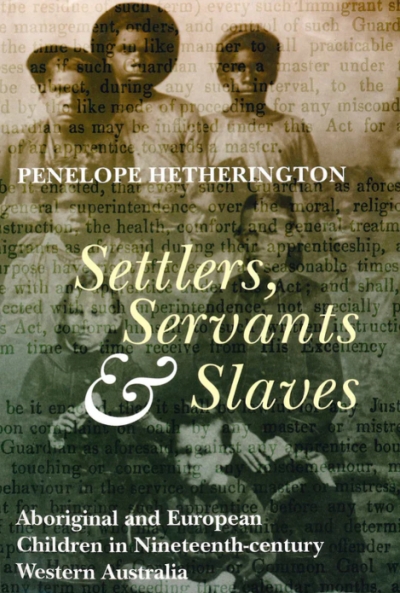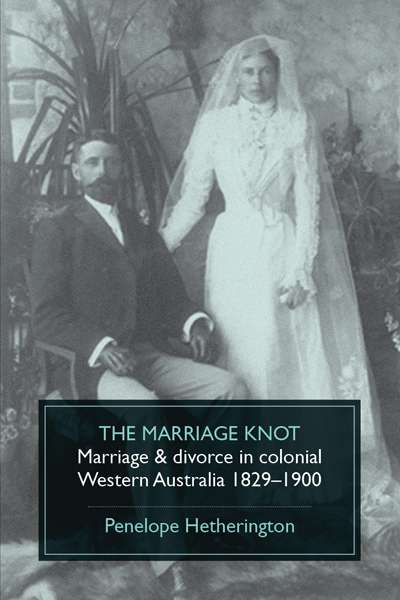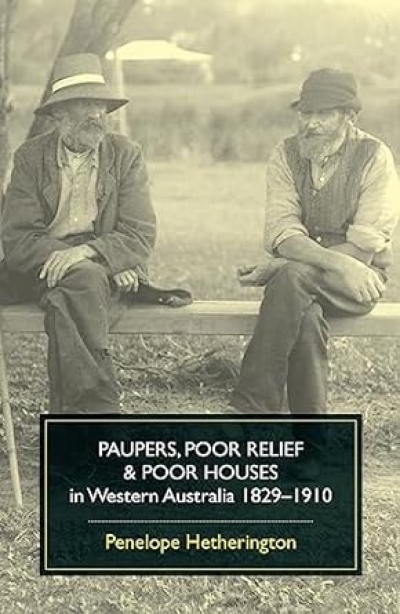Penelope Hetherington
Settlers, Servants & Slaves: Aboriginal and European children in nineteenth-century Western Australia by Penelope Hetherington
by Peggy Brock •
The Marriage Knot: Marriage and Divorce in Colonial Western Australia by Penelope Hetherington
by Anne Partlon •
Paupers, Poor Relief and Poor Houses in Western Australia, 1829–1910 by Penelope Hetherington
by Richard Harding •



